“Crucial to understanding federalism in modern-day America is the concept of mobility, or ‘the ability to vote with your feet.’ If you don’t support the death penalty and citizens packing a pistol – don’t come to Texas. If you don’t like medicinal marijuana and gay marriage, don’t move to California.” – Rick Perry.
The words federation and federalism originate from the Latin word “foedus” meaning a treaty, pact, or covenant. Since the early eighteenth century, a federal government has worked as a collection of states with one supreme government while maintaining the sovereignty and integrity of each state.
In a federal state, all the basic policies are often implemented as an understanding, and sometimes a compromise, in between all the member states. The United States is the oldest functioning federation in the world, with Nepal being the newest one.
Federal Laws- A Basic Understanding
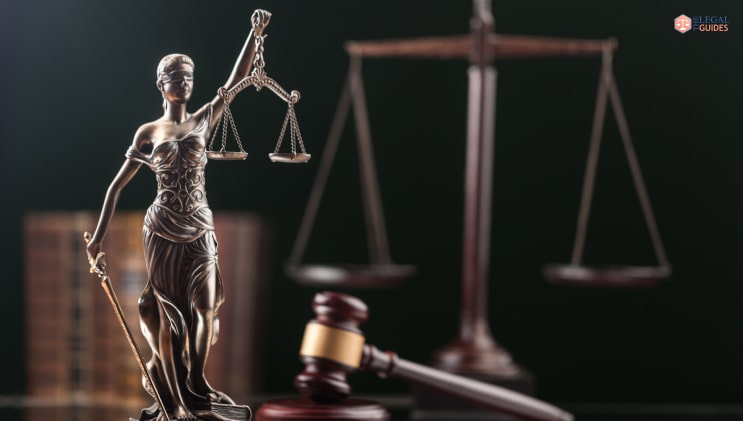
To understand a federal law enforcement agency, we must know what a federation is. A federation is a system of government with a Constitution-backed division of powers between the states and the central government(also known as the federal government).
The Constitution of a federation grants the states the power to handle internal affairs without facing interference from the federal government of other states. The United States Constitution states the importance of “dual sovereignty,” where the states are to abide by federal laws while still retaining internal sovereignty.
What Are Federal Laws?
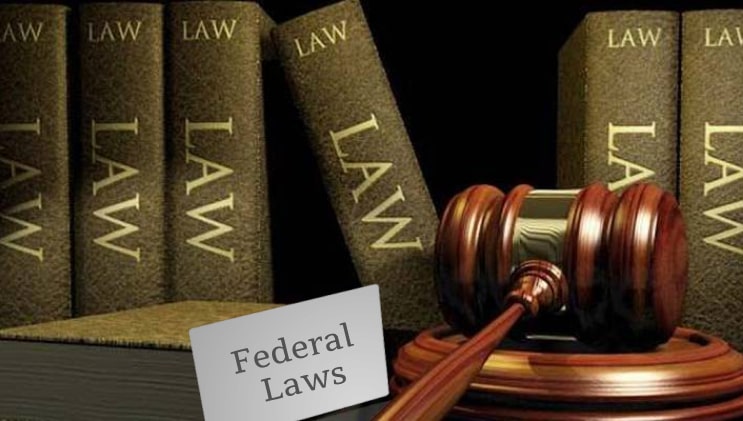
Federal Laws are applicable to all states. They are bills that are-
- To be passed by both houses of Congress (House of Representatives and the Senate),
- To be signed by the President,
- To be passed over by the President’s veto,
- Or sometimes without the President’s signature.
If the bill does not attain the President’s signature in the next 10 days, it is passed automatically.
Federal Law Enforcement Agency

The proper way to understand federal laws in the United States is to learn them through their enforcement agencies. Federal laws are enforced by several agencies that have been vested with the power to do so.
The United States Code is the codified compilation of all federate statutes passed in the US.
The noncodified statutes are included under the “United States Statutes At Large”. The major Law Enforcement Agencies include:
| Fun Fact: Remember Steve Murphy in the popular Netflix drama series, Narcos? Yes, I am referring to the DEA agent who played a major part in killing Escobar. So, the DEA is a subsidiary law enforcement agency of the Department of Justice which you will come across later in the article. |
The most popular federal law enforcement agency list includes-
The United States Department Of Justice

This body has been vested with the power of law enforcement by administering justice across states. It was founded in 1870 by U.S. Grant, the 18th President of America. The primary functions of the department include:
- Governing the federal prison system.
- Looking into White Collar Crimes.
- Legally representing the US government.
Subsidiaries
Mentioned below are the subsidiaries of the Department of Justice in the US:
- Federal Bureau Of Investigation– Domestic intelligence and security service. (Yes, the same one Alex Parrish works at in the “Quantico” TV series)
- Federal Bureau of Prisons– Dealing with control, custody, and care of prisoners.
- Bureau of Alcohol, Tobacco, Firearms, and Explosives– Looking into illegal trafficking and tax evasion of these goods.
- United States Marshals Service-Providing assistance and guidance to U.S. Marshalls.
- US Department of Justice Civil Rights Division-Ensures no discrimination based on race, religion, sex, origin, and disability.
- US Department of Justice Criminal Division– Formulates, enforces, and oversees the application of criminal laws.
- US Department of Justice Anti-Trust Division– Dealing with civil and criminal anti-trust cases.
- Drug Enforcement Administration-Looking into drug trafficking and distribution in the US. This is one of the more popular subsidiaries by virtue of highly televised coverage.
The United States Department Of Homeland Security
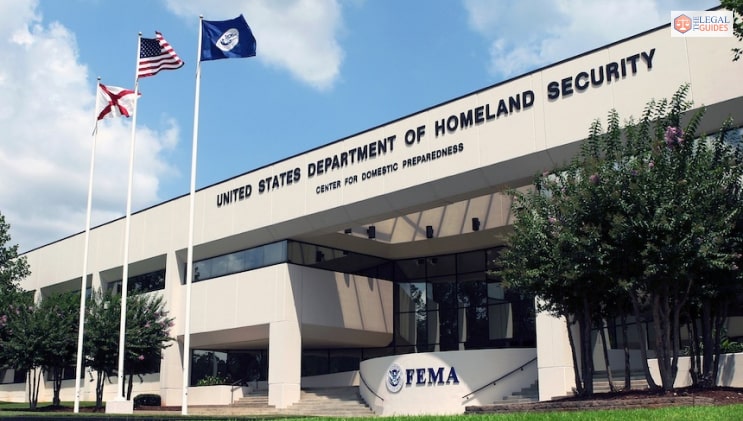
Established by the Homeland Security Act of 2002 as a measure against the then-recent 9/11 attacks, this federal law enforcement agency deals with issues involving anti-terrorism, cyber security, disaster management, border security, immigration, and customs.
Subsidiaries
Mentioned below are the subsidiaries of the Department Of Homeland Security:
- United States Customs and Border Protection (CBP) is in charge of border control, import duties, customs, and immigration.
- U.S. Citizenship and Immigration Services (USCIS) offers naturalization and immigration services.
- U.S. Immigration and Customs Enforcement (ICE) protects the nation from cross-border criminal activity and illegal immigration.
- Transportation Security Administration (TSA) looks after internal transportation security.
- United States Secret Service (USSS) conducts investigations and protects the families of political heads and government officials.
- Federal Emergency Management Agency (FEMA) deals with overwhelming disasters in the state(for instance, 9/11).
- United States Coast Guard (USCG) deals with the maritime security and law enforcement of the nation.
- Federal Protective Service (FPS) handles all the police departments of the nation.
- Federal Law Enforcement Training Centers (FLETC) serve as training centers for all law enforcement agencies of the nation.
- The Science and Technology Directorate serves as the center for research and development.
- Domestic Nuclear Detection Office (DNDO) detects and looks into unauthorized possession, storage, and development of nuclear and radioactive weaponry.
Internal Revenue Service, Criminal Investigation (IRS-CI)

This federal law enforcement agency looks into revenue and tax-related crimes which cause criminal violations of the Internal Revenue Code. The IRS highly prioritizes crimes relating to
- Identity fraud,
- Questionable refunds,
- International tax frauds,
- Political or public corruption,
- Drug-related financial fraud,
- Asset forfeitures,
- Bank Secrecy Act violations.
The United States Department Of State

This federal law enforcement agency is responsible for the foreign policy of the government to ensure the USA’s benefit from international relations and trade. Established in 1789. The secretary of the state heads it.
Its main functions include:
- Advising the president on international dealings.
- Representing the USA in the United Nations.
- Overseeing international deals and treaties.
The United States Department Of Treasury

It is an executive law enforcement agency and manages the mechanisms of the Bureau of Engraving and Printing and the US mint, primarily. It looks after the production of US currency and manages public accounts and debts.
Subsidiaries
Its primary subsidiaries include
- Internal Revenue Service.
- United States Mint.
- United States Customs and Service.
- Bureau of the Public Debt.
The United States Department Of Defence
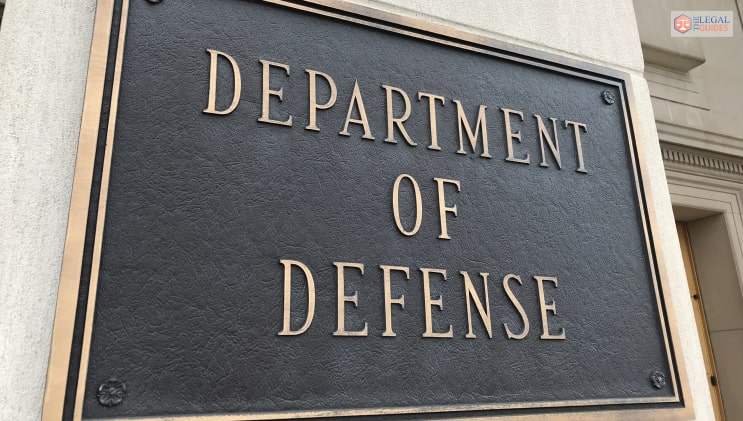
An integral part of the executive federal law enforcement agency, this department looks into matters of national security. The Secretary of Defence heads it. Its primary purpose is to
- Deter war.
- Protect national security.
Subsidiaries
Its primary subsidiaries include:
- Department of the Army.
- Department of the Navy.
- Department of the Airforce.
- National Security Agency.
- Defence Intelligence Agency.
United States Department Of Agriculture (USDA)

The United States Department of Agriculture (USDA) is responsible for the sectors of forestry, farming, food, and rural development. The secretary of agriculture heads it.
Subsidiary Agencies
Some of its subsidiaries include:
- Agricultural Marketing Service.
- Agricultural Research Service.
- Food and Nutrition Service.
United States Department Of Labor (DOL)

This department is responsible for laws and regulations regarding occupational safety, wage, labor, unemployment benefits, etc. The department aims to protect the welfare and security of wage-earners.
United States Department Of Health And Human Services (HHS)

This department operates with the aim of improving the health and safety of Americans. It administers and enforces disease control and prevention laws, substance abuse and mental health, maternal and childcare issues, and the like.
The United States Department Of Energy (DOE)
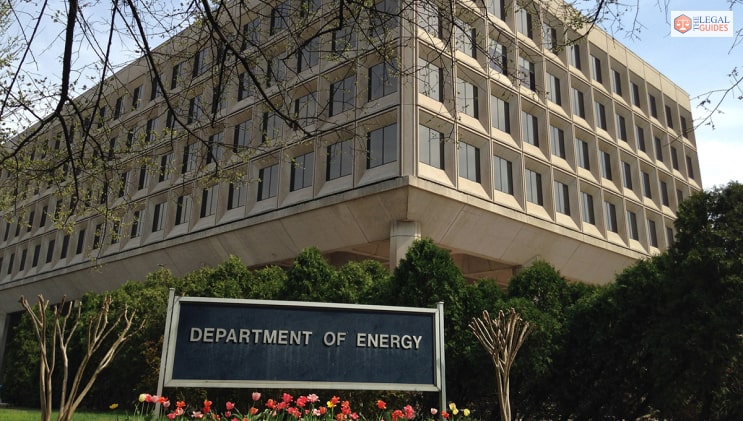
The department looks after the national energy policies and energy-related research and development in the US. It oversees nuclear weapon programs, energy production, and energy conservation.
United States Department Of Education
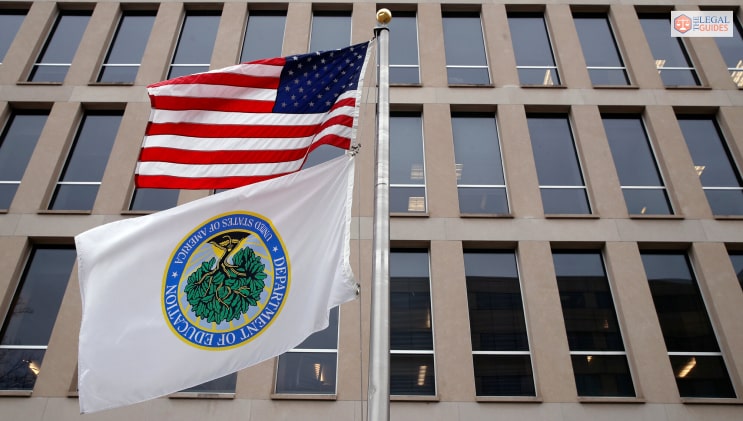
This department was earlier a part of the Department of Health, Education, and Welfare. It currently runs with the objectives of:
- Achieving financial aid for education.
- Gathering data on the education system for further research.
- Prohibiting discrimination among children in educational institutions.
United States Department Of Veterans Affairs (VA)

This department looks into life-long healthcare services provided to military veterans. Other forms of assistance provided to the veterans include:
- Vocational rehabilitation.
- Disability pensions.
- Educational assistance.
- Home loans
- Life insurance.
Conclusion
These are the most important law enforcement agencies under the United States government. These carry out the union government’s functions in different spheres of the states and make sure that the federal laws are maintained without violations.
They operate with the aim of enforcing and protecting laws on a federal level. These agencies operate according to various acts passed by the houses of Congress, which will be dealt with in the subsequent articles.
Let us know if you found this article informative!
Read More About:
















